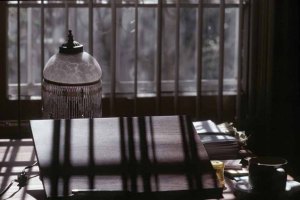This is a guest blog with some good points about queries. Another point of course is to be sure your lead paragraphs mentions (along with a good hook and the book title, genre, word count, and any super-major (short] blog you may have for it, the reason you are querying this particular agent or press.
 There’s a story in there somewhere…
There’s a story in there somewhere…
I’ve been querying a book and it has not been going well. I had a few requests from conference meetings and Twitter pitchfests, but in the actual emailing-agents-I’ve-never-met process, I was just not getting the response I hoped for.
This was deeply puzzling.
I definitely workshopped the heck out of the actual book. It’s a Young Adult novel so I had kids read it (they showed up 40 minutes early for school to discuss it, perhaps the best compliment my work has ever received). Good adult readers read it and gave feedback I used.
And I workshopped the heck out of the query. I read all of Query Shark (highly recommended!). I participated in Twitter pitchfests. I ran the query by query workshop leaders.
But not too many nibbles.
A couple of weeks ago, two of my writer buddies and I were sitting in…
View original post 454 more words




